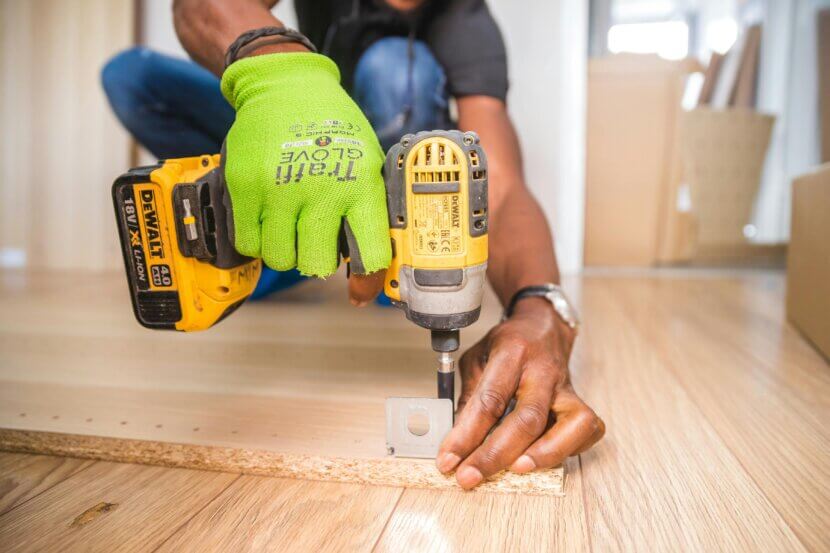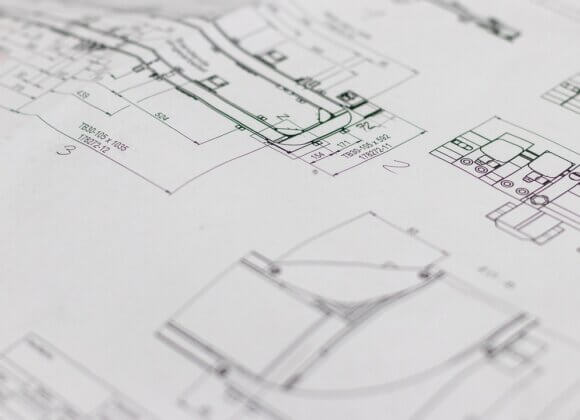Building work in the house is anything but pleasant for residents. We took a look at what you have to tolerate – and what you don’t.
The stairwell is being renovated, the attic is being extended or the neighboring apartment is being converted. For residents, building work like this is anything but pleasant, as it brings with it inconveniences such as noise, more dirt and the like. But do you really have to put up with everything? Lawyer Valentina Philadelphy-Steiner explains the obligation to tolerate and your rights.
About rights and obligations
Tenants not only have rights, but also obligations. The latter include allowing certain measures by the landlord. This includes maintenance and improvement work – both on the house and in the tenant’s own or other apartment(s) in the building. “For this work, the landlord or the companies carrying out the work must also be granted access to their own apartment if necessary,” says lawyer Valentina Philadelphy-Steiner. This means that the associated nuisances such as dirt or noise must generally be tolerated. Incidentally, you also have to tolerate it if your neighbor renovates their apartment. “You can therefore neither prohibit the owner from installing a lift nor the neighbor from renovating the bathroom or floor,” says the lawyer.
Does the landlord/manager have to announce construction work in the building, for example by posting a notice?
Construction sites must be publicized accordingly. The required submission documents must also be available on site. In this respect, there are of course certain notification obligations. In practice, however, you sometimes have to deal with smaller works within the apartments, some of which are not officially notified by means of a building notice. This can lead to quite trivial problems, so that it is first necessary to find out where the construction noise is coming from.
How long do you have to put up with the building work in the house?
The disruption must not exceed normal levels. Clients and those carrying out the work must ensure that the work is completed quickly and that the duration and extent of disruption to neighbors is kept to a minimum.
Is there a midday break for building work in the house?
There are no statutory quiet periods around midday, but a stricter standard must be applied at night and on Sundays and public holidays if the noise is disruptive and undue. However, this always requires a case-by-case assessment. Under certain circumstances, a noise disturbance can constitute an administrative offense or, as a neighbor, you also have the option of prohibiting the noise if it exceeds a customary level.
The work creates a lot of dirt – who has to take care of the cleaning?
Whoever causes the construction site is obliged to arrange the cleaning. “However, this is a frequent point of contention, especially in the property sector, namely when it is only one owner: in practice, the additional cleaning costs are repeatedly offset in the operating costs via the property management, with the result that everyone then pays a proportionate share,” says Philadelphy-Steiner.
How much noise do you have to put up with?
Construction noise, and therefore also construction work, is permitted in Vienna from Monday to Sunday, and also on public holidays, between 6 am and 8 pm. “But there are also exceptions,” says Philadelphy-Steiner. These include, for example, work to eliminate an immediate danger. In general, it is always a case-by-case assessment. Of course, such noise is a nuisance for neighbors, but in practice it is sometimes simply unavoidable.
Can you defend yourself against noise pollution?
If the construction work takes place within the times defined by the Building Noise Act, the noise caused by the construction work in the house must be tolerated. At least as long as it corresponds to what is customary in the area. However, the problem with local custom is that there is neither a precise definition nor a specific decibel level. In addition, the existence of a significant nuisance is not assessed according to personal perception, but according to how the average person perceives it. If, for example, the neighbor does not adhere to the prescribed quiet times, it may be possible to sue for injunctive relief. “However, I would definitely advise contacting the neighbor directly as a first step and talking to them. In a second step, you can contact the landlord or property manager,” advises Philadelphy-Steiner.

As a rule, however, you have to live with it.
Is construction work in the building a reason for a rent reduction?
If the tenant’s use of the apartment is severely impaired for a longer period of time, whether due to noise or if the elevator is out of service for a longer period of time due to construction work, it may be possible to demand a rent reduction. “However, it is advisable to continue paying the rent under reserve until you have reached an agreement with the landlord on the amount of the reduction,” says Philadelphy-Steiner.
If you reduce the rent yourself without a corresponding agreement, the landlord could bring an action for rent and eviction or you may have to pay additional rent if the court decides that you have withheld too much. “You should therefore seek legal advice – especially on the amount of the rent reduction,” advises the lawyer.
However, the prospects of this are limited: For example, there are rulings that the rent cannot be reduced if construction measures (closing gaps between buildings, conversions, extensions, repairs to existing properties) are to be expected in a closed residential area, as these immissions are generally to be regarded as customary for the location.
FAQs on building work at home
Do you have to tolerate building work in the house?
Yes, tenants and condominium owners must generally tolerate certain construction work in the building. This includes maintenance work (e.g. renovation of the roof, facade or pipes) as well as improvement measures such as the installation of a lift. Renovations in neighboring apartments must also be tolerated, provided they are carried out lawfully. Associated disturbances such as construction noise or dirt are generally considered reasonable as long as they do not exceed the customary local level.
Do I have to announce construction work in the house?
In principle, yes. Major construction work must be publicized, for example by posting notices in the building. Measures requiring approval require corresponding submission documents, which must be available on site. However, in the case of minor alterations within individual apartments, it is often the case that these are not announced separately. In such cases, it is often necessary to clarify where the construction noise is coming from in the first place.
What quiet periods apply to construction work and construction noise?
In Vienna, construction work is generally permitted between 6 am and 8 pm – even on Sundays and public holidays. There is no statutory midday rest period. However, a stricter standard applies during the night when it comes to undue noise development. Whether a noise nuisance is unacceptable is always assessed on a case-by-case basis. The decisive factor is whether the customary local level is exceeded – not the subjective perception of individual residents.
Who is responsible for dirt and cleaning after construction work?
In principle, the party responsible for the construction site is obliged to pay for cleaning. This applies, for example, to dirty common areas such as stairwells or elevators. In practice, however, it sometimes happens that additional cleaning costs are included in the operating costs via the property management. In this case, all owners or tenants bear the costs proportionately – a frequent point of contention in residential complexes.
Is construction work in the building a reason for a rent reduction?
A rent reduction may be possible if the use of the apartment is significantly impaired over a longer period of time – for example due to massive construction noise or an elevator that is permanently out of order. However, the rent should not be reduced arbitrarily. It is recommended that you initially continue to pay the rent with reservations and seek legal advice. Courts decide on a case-by-case basis, whereby construction work in densely built-up areas is often considered normal for the area and therefore does not justify a rent reduction.

Valentina Philadelphy-Steiner is a lawyer and registered mediator. She is an expert in family law and real estate law and founded the law firm in Vienna’s city center in August 2020. She previously worked in well-known commercial law firms in Vienna.
Related posts:
Planning a loft conversion? What you should know











